We need to maximize storage in our small kitchen. Any suggestions?
Related Discussions
Does anyone have an idea for storing or displaying old cookie cutters?
I have over 100 antique and vintage cookie cutters in various sizes and shapes. Some copper, some galvanized and some red plastic. They are kept in two of my apotheca... See more
What are the best ways to store Tupperware lids?
Does anyone have a means of storing Tupperware lids? I currently have the standing up against the cabinet wall and the back wall. Other non-essential dishes hold up t... See more
Need ideas for making my kitchen cabinet under peninsula accessible
I am tired of trying to get items out of this peninsula cabinet. I can't reach or see what's back in there. I would love to do something on the opposite side so that ... See more
Any storage ideas for a LOT of vitamin and supplement bottles?
Live in an apartment where space is limited. Have a lot of bottles of vitamins and supplements, and they are all over the counter, overflowing from a container that u... See more
How to tie in an above the fridge cupboard and an existing bulk head?
My kitchen was remodeled by the formerowners and we just added an above the fridge cupboard for extra storage. (We are retired and willnot be able to totally redo thi... See more
Kitchen storage
I have a two door cabinet over the stove in the kitchen. I would like some ideas as to what items should be stored there. No spices, etc. should be over the stove. Al... See more
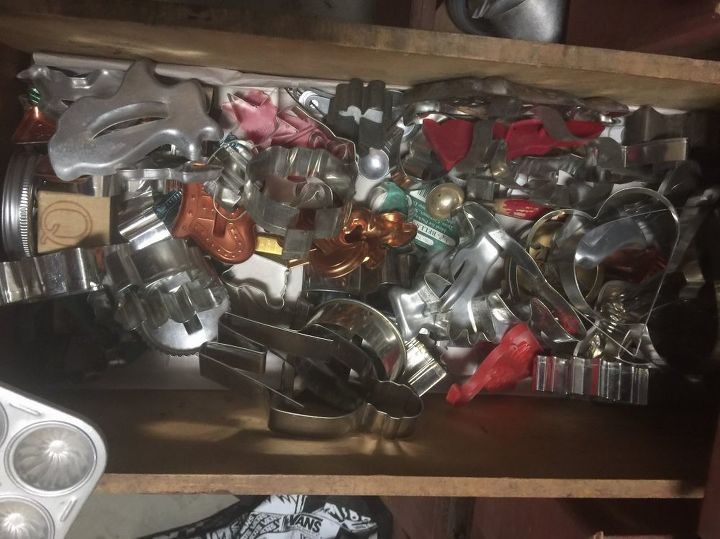
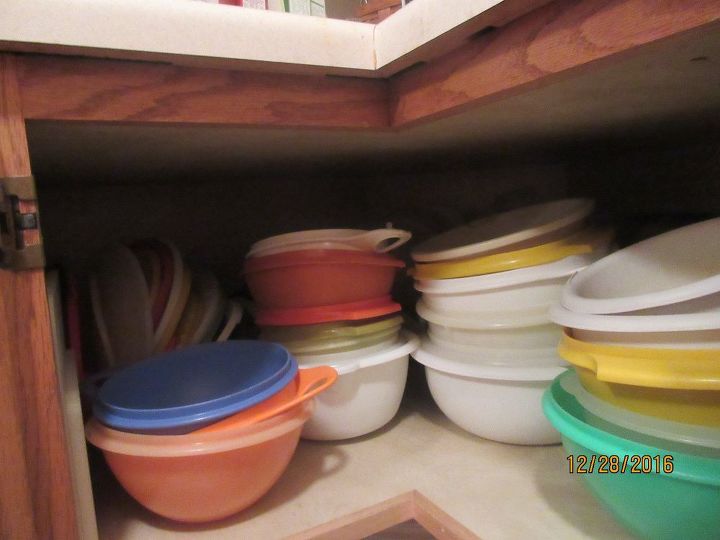
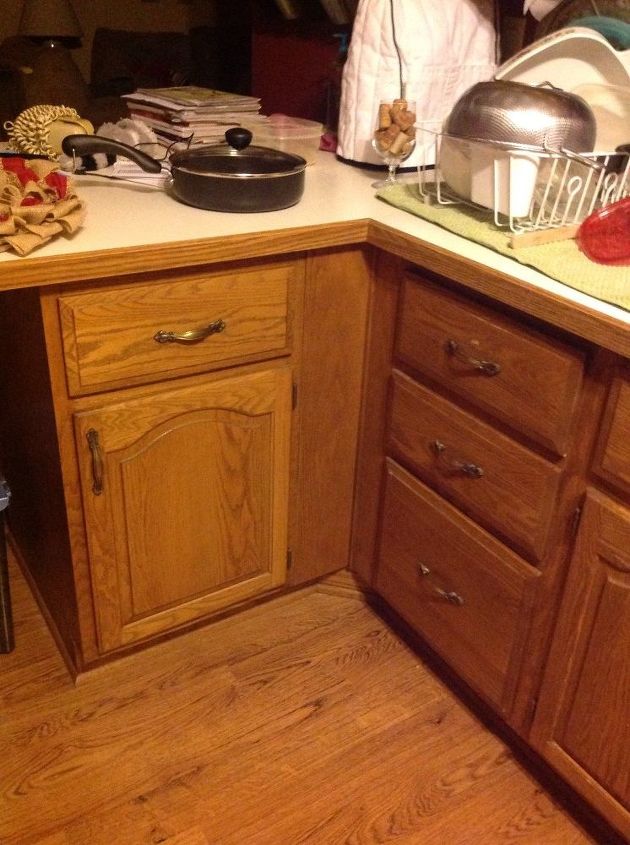
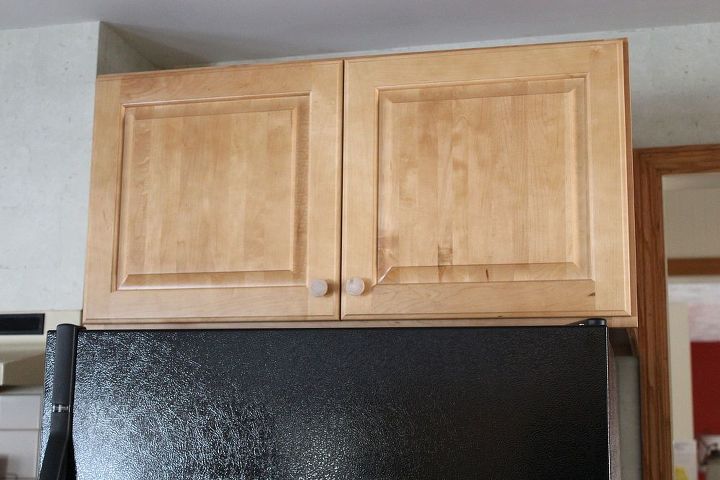
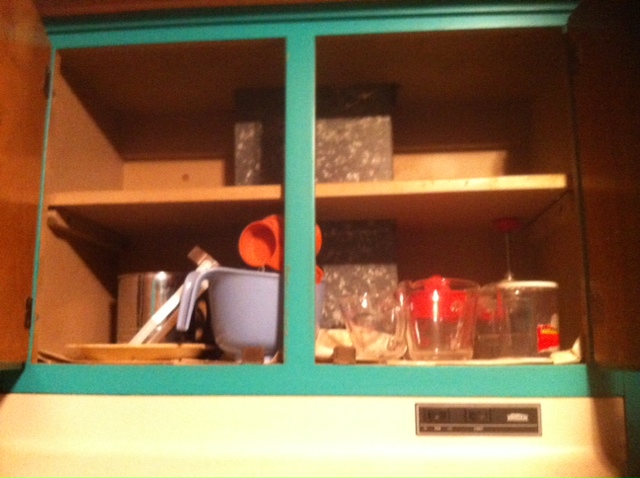
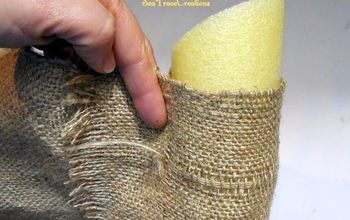
I'm not staff, but I have an extremely small kitchen. I went to Costco and bought a set of stackable transparent plastic boxes that seal tight. I store extra dry goods in them out in my shed.
My house is small too. My garage is only partially insulated so unless in the fridge or freezer, out there is not good for any long term food storage. And I always have enough pet food (3+ dogs, 6 cats, a canary and dragon), for a month. To feed myself, I did stuff like canned tuna and veggies. Any that can be consumed without cooking if necessary. Water I purchase in the 2.5 gallon handle containers and generally have a at least a (Costco or Sam's Club size), case of individual bottles in the garage fridge. I have the awkward storage above the fridge and I stash all the canned goods up there. I rotate out every 6 months, so come July 4th holiday, half the older cans will go to the local food bank. Then I replenish the stock. I have lists taped inside the cabinet doors. Typically after an earthquake, there is no electricity or gas so you eat all the stuff in the fridge and freezer first before it spoils. I have propane and charcoal grills and bbq's with ample supplies for both as well as camping lanterns for light along with candles (to use outside if safe to do so), and lots of batteries and several flashlights. I just always pray the earthquake is not so bad that I can't get to my supplies. I also have a tent and sleeping bags to set up in the backyard if need be.
If you have nothing under your bed, get the plastic bins that easily slide under and store supplies there. If you have even a portion of a closet, use it. If your supplies are scattered throughout the house, make a master list of where things are located and have several printed copies. Remember, you may not have electricity and cell phone service may be spotty. Plus unless you have ample external back up chargers for your phones, you will need a way to charge them. Turning on your car is not an option as there will be no where to get gas. Conserve it in case you need to evacuate the area.
If you can or think you need it, buy a generator. Medicine, spare glasses, contacts, have at least a 2 week supply on hand at all times. My health insurance gives "vacation renewals" so twice a year I buy extra meds so that I am well stocked at all times. I carry a week's worth of meds in my handbag in case an earthquake strikes and I can't get home for a few days.
Both front and back of house have stickers in the window with a list of resident pets for the police, fire department and search and rescue crews. Hopefully the house will not collapse and they will find my animals if I am not there.
Important documents. I have duplicates of most of my stuff but not all. I do not have a computer so all my stuff is actual paper. Get a fire safe for important documents and any firearms if you own any.
Here are some great reference checklists.
https://www.cdc.gov/disasters/earthquakes/supplies.html
https://www.ready.gov/build-a-kit
I have all this stuff. It is a lot, but if you collect over time and have a plan and printed lists of stuff to grab if you are forced to evacuate, it is easier to think and not get rattled and forget something. Remember lists lists lists and several copies printed!